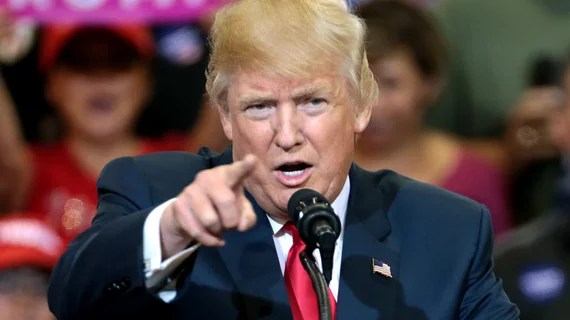US tariffs on Chinese imports include cardiac, medical imaging equipment
A host of medical devices—including imaging equipment, pacemakers and electrocardiographs—are included in the list of Chinese products that will be hit with a 25 percent tariff beginning July 6, the U.S. government announced Friday.
The tariffs will cover approximately $34 billion worth of Chinese imports, with products worth another $16 billion undergoing further review.
The announcement came from the Office of the United States Trade Representative (USTR) after months of speculation, trade talks and threats from President Donald Trump.
“China’s government is aggressively working to undermine America’s high-tech industries and our economic leadership through unfair trade practices and industrial policies like ‘Made in China 2025,’” Ambassador Robert Lighthizer said in a USTR statement. “Technology and innovation are America’s greatest economic assets and President Trump rightfully recognizes that if we want our country to have a prosperous future, we must take a stand now to uphold fair trade and protect American competitiveness.”
China’s Commerce Ministry called the U.S. action “fickle” and said it has provoked a “trade war.” The statement indicated China will impose similar taxation measures on American goods and encourage other countries to take action.
The USTR said U.S. companies may request particular products to be excluded from the tariffs during a public comment period. More details will be available on that process “within the next few weeks,” according to the announcement.
Read more from Radiology Business at the link below:

